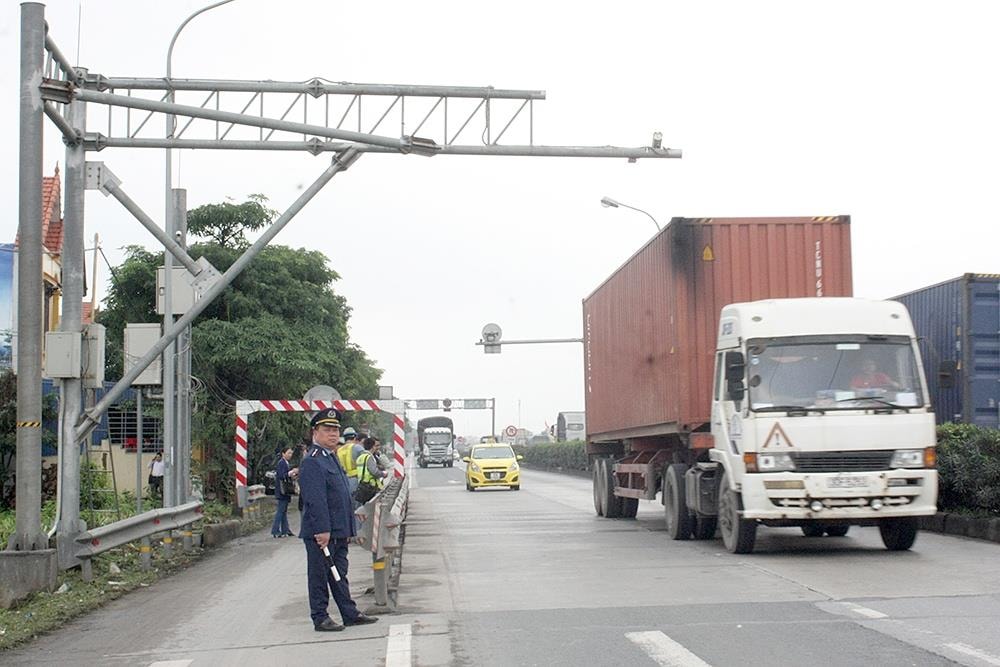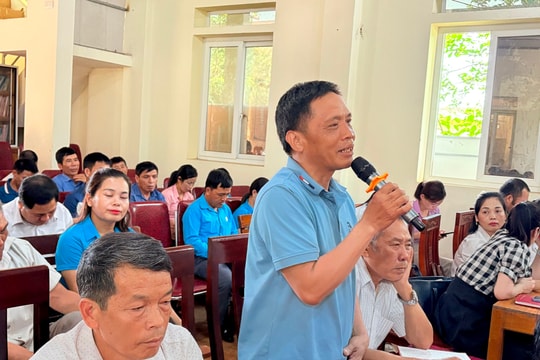Overloaded vehicles will be eliminated when automatic electronic scales are deployed.
The automatic electronic load weighing system, when deployed synchronously nationwide, is expected to fine and eliminate overloaded vehicles.
The Vietnam Road Administration has just received the handover of the most modern automatic electronic load weighing system in Vietnam, located on National Highway 5 (Hai Phong), sponsored by the Japan International Cooperation Agency (JICA). When deployed nationwide, this system is expected to fine and eliminate overloaded vehicles.
Mr. Dang Van Chung, Deputy Director of the Traffic Safety Department (Vietnam Road Administration) said that the weighing system has sensors placed under the road surface and a camera that automatically captures the license plate of passing vehicles, reading out 15 pieces of information such as: Vehicle owner name, vehicle weight, permitted cargo weight, and cargo size. The system will automatically calculate whether the vehicle has violated the weight limit and to what extent.
 |
Automatic electronic load weighing system installed at Km78 on National Highway 5 (Hai Phong) |
“This is a weighing system with high accuracy and life cycle, controlling 100% of vehicles on the road system, overcoming the disadvantage of only being able to control 2 lanes at current toll stations,” said Mr. Chung.
According to Mr. Chung, this weighing system has an error of 0, the largest error is about 5 - 6%, while the inspection regulations allow up to 10%. When the vehicle passes through the weighing system, in just a few seconds, sitting anywhere, the control force only needs to go online to print the weighing ticket to know whether the vehicle has violated or not, can know exactly the violations such as: Violating the axle load or total vehicle weight, or exceeding the permitted cargo weight by how many tons, what percentage of overload, comparing with Decree 46/2016 to see if there is a fine or not.
“This electronic scale can weigh vehicles that are stationary or moving at speeds of up to 80 km/h. The weighing slip is printed in just 3-10 seconds. This will help authorities quickly decide on on-the-spot fines or fines,” said Mr. Chung.
Mr. Trinh Phat Thinh - Deputy Manager of National Highway 5, Vietnam Infrastructure Development and Financial Investment Corporation (VIDIFI) said that vehicles running on the route when the system reports a violation will be transferred to the mobile weight inspection station of Hai Duong province located behind the automatic weighing station for inspection and handling.
“Although we have not yet received the handover and have not officially operated it, since the pilot weighing system was installed on National Highway 5, the number of overloaded vehicles has decreased sharply. Drivers have heard about this modern weighing system and told each other that they will be automatically checked and fined, so they do not dare to violate it anymore,” Mr. Thinh said, adding that this weighing system is still managed by the Vietnam Road Administration and is expected to be handed over to VIDIFI for operation at the end of March 2019.
According to Mr. Dang Van Chung, when this weighing system is in place, the number of people needed to operate the weighing stations will be greatly reduced. Previously, the Dau Giay weighing station or Quang Ninh required 40-50 operators. But with this system, only one person is needed per shift, including management and supervision.
“When driving, the vehicle owner knows that this weighing system is accurate and controls 100% of overloaded vehicles. If there is a violation, the results are still stored and can be fined at any time and they will not dare to overload again,” said Mr. Chung.
After the pilot period, the General Department of Roads will propose to the Ministry of Transport to study and deploy this weighing system on important routes, where there are material mines... to thoroughly prevent overloaded vehicles. When this weighing system detects a vehicle violating the law, the results will be sent directly to the traffic inspectors or traffic police to carry out "cold fines".



